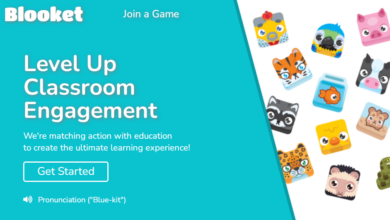Spend your Memorable Days With Your Loved Ones While in Dubai
Do you want to spend memorable days with your loved ones in Dubai? Well, you can do just that by visiting the Dubai Mall. The Dubai Mall is one of the world’s largest shopping malls and one of the most popular tourist attractions in Dubai. It is also one of the best places to shop for luxury goods. You can find anything and everything that you need in the Dubai Mall and able to Explore other indoor activities in Dubai too.
Visit Burj Khalifa
Burj Khalifa is the tallest building in the world, located in Dubai, United Arab Emirates. It is one of the most popular tourist destinations in Dubai, as it offers stunning views of the city from its observation decks. Visitors can also learn about the building’s design and construction at the Burj Khalifa Visitor Centre. Burj Khalifa is the tallest building in the world, located in Dubai, United Arab Emirates. It is one of the most popular tourist destinations in Dubai, as it offers stunning views of the city from its observation decks. Visitors can also learn about the building’s design and construction at the Burj Khalifa Visitor Centre. The Burj Khalifa is an iconic symbol of Dubai’s skyline and is a must-see for any visitor to the city. The building was designed by Adrian Smith of Skidmore, Owings & Merrill, and Samsung C&T. Burj Khalifa managed its construction was completed in 2010, and its official height is 828 meters (2,717 feet). The building has 163 floors, and its observation decks are located on the 124th and 148th floors. You can also explore other things to do in Dubai by visiting the Burj Khalifa.
Desert Safari with BBQ Dinner
A desert safari is a memorable experience that you will cherish for a lifetime. It is an opportunity to explore the natural beauty of the desert and its wildlife. The safari includes a visit to the Bedouin camp, where you will learn about their culture and way of life. You will also have the opportunity to try some traditional Arabic food. The highlight of the safari is the BBQ dinner, which is cooked over an open fire. This is a unique experience that you will not find anywhere else in the world. A desert safari is a great way to spend a day in the desert. You will be able to see the natural beauty of the desert and its wildlife. You will also have the opportunity to learn about the culture and way of life of the Bedouin people. The safari includes a visit to the Bedouin camp, where you will be able to try some traditional Arabic food.
Indoor Skydiving
If you’re looking for an exhilarating experience, indoor skydiving in Dubai is a must-try. With some of the tallest buildings in the world, indoor skydiving facilities in Dubai offer a truly unique experience. There are a few things to keep in mind before you take the plunge. First, indoor skydiving is not for everyone. If you have a fear of heights, this may not be the activity for you. Second, make sure to wear comfortable clothing that you can move around in. Third, listen to the instructors carefully and follow their instructions. Indoor skydiving in Dubai is an unforgettable experience. If you’re looking for an adrenaline rush, this is definitely the activity for you. Indoor skydiving is an activity where you jump out of a tall building and into a wind tunnel, which gives you the feeling of flying. Indoor skydiving in Dubai is an unforgettable experience. If you’re looking for an adrenaline rush, this is definitely the activity for you. Indoor skydiving is an activity where you jump out of a tall building and into a wind tunnel, which gives you the feeling of flying..
Enjoy Rides at IMG Worlds of Adventure
IMG Worlds of Adventure is one of the largest indoor theme parks in the world, and it offers a wide variety of rides and attractions for guests to enjoy. From thrilling roller coasters to family-friendly rides, there is something for everyone at IMG Worlds of Adventure. And with a variety of ticket options available, guests can choose the perfect package for their visit. So whether you’re looking for a day of thrills or a leisurely afternoon with the family, be sure to check out IMG Worlds of Adventure. IMG Worlds of Adventure is one of the largest indoor theme parks in the world. It offers a wide variety of rides and attractions for guests, including roller coasters, family-friendly rides, and more. There are a variety of ticket options available, so guests can choose the perfect package for their visit.
Enjoy Skiing at Ski Dubai
Ski Dubai is one of the most popular ski resorts in the world. It is located in the United Arab Emirates and offers a wide range of skiing and snowboarding facilities. The resort has a wide variety of slopes to choose from, and the lifts are fast and efficient. Ski Dubai also has a number of restaurants and bars, as well as a spa and a swimming pool. Ski Dubai is one of the most popular ski resorts in the world. It is located in the United Arab Emirates and offers a wide range of skiing and snowboarding facilities. The resort has a wide variety of slopes to choose from, and the lifts are fast and efficient. Ski Dubai also has a number of restaurants and bars, as well as a spa and a swimming pool. The resort is also home to a number of ski schools, which offer lessons for all levels of skiing.



